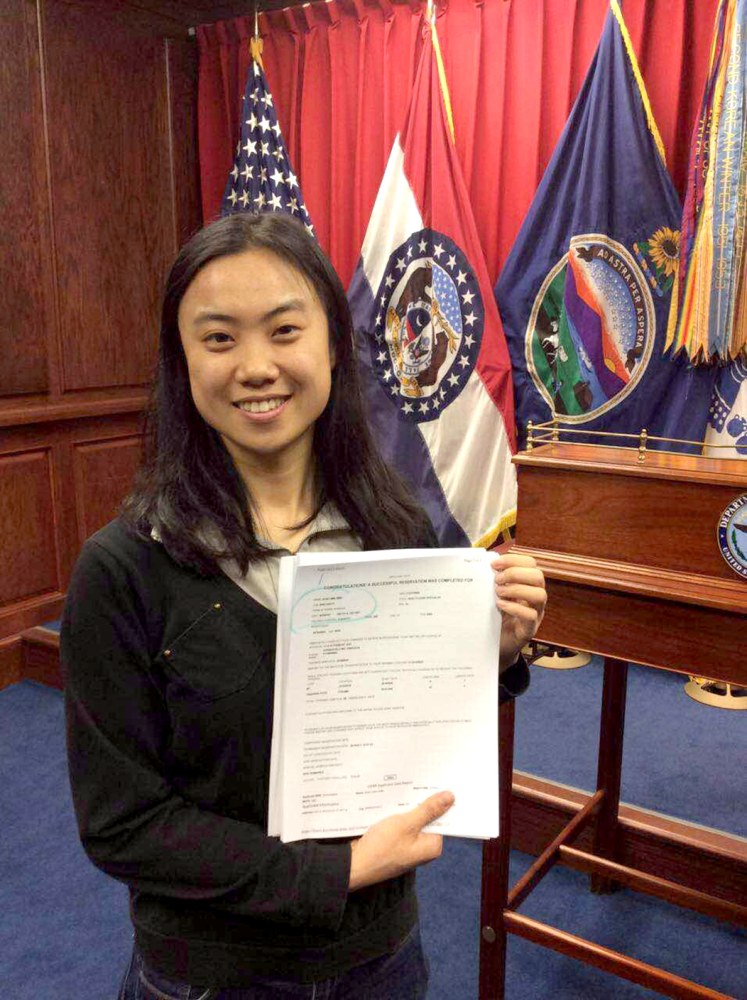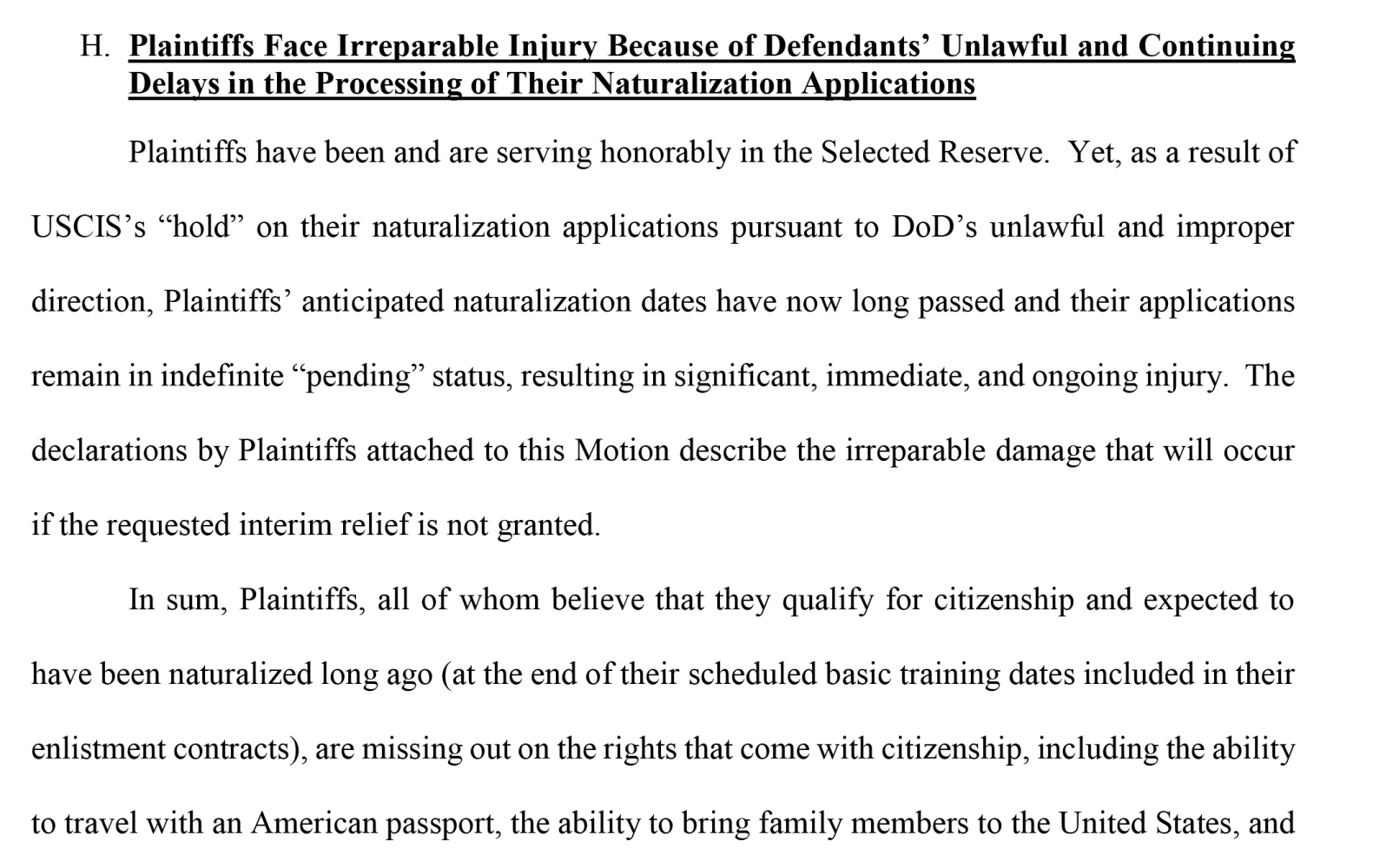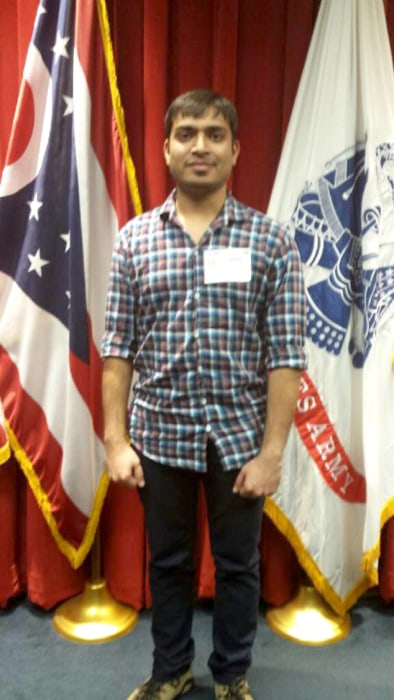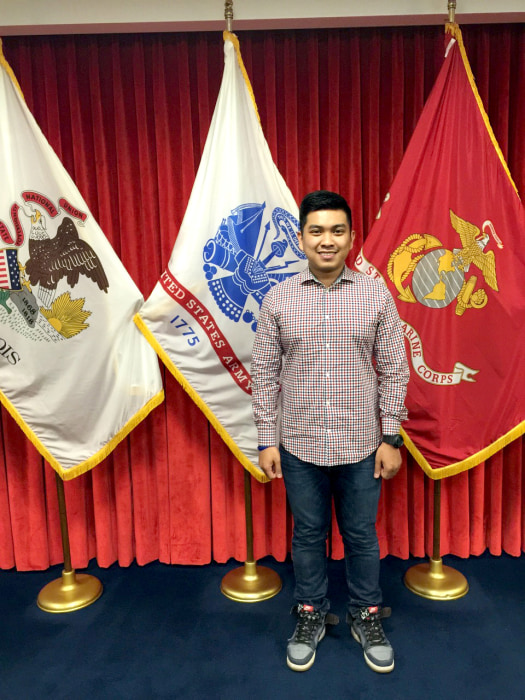Min Zhao saw the Army as an exciting opportunity when she decided to change her career and leave marketing in 2016.
In March of that year, she signed an enlistment contract as a combat medic and was scheduled to begin basic training six months later.
But more than a year since she signed her agreement, Zhao, now 27, hasn’t shipped out.

A native of China and a speaker of Mandarin, Zhao joined the U.S. Army through the Military Accessions Vital to National Interest (MAVNI) program, which allows the military to enlist noncitizens with skills such as medicine or the ability to speak in-demand languages like Mandarin. The program also offers the recruits an expedited pathway to citizenship.
But recent changes to the program due to security concerns have delayed Zhao’s ship date and put hers and hundreds of other recruits’ immigration status in a state of uncertainty.
“The difficulties this ‘limbo’ state has created are, as you can imagine, far reaching both psychologically and financially,” Zhao told NBC News. “I am having to live off rapidly diminishing savings and deal with the uncertainty of what is next.”
Zhao said her recruiter told her that it was unnecessary to maintain her non-immigrant student visa after enlisting. When it expired before she could ship out and receive citizenship, Zhao had to apply for deferred action from U.S. Citizenship and Immigration Services (USCIS), which delays deportation but does not grant lawful immigration status.
A May 2017 memo from Defense officials addressed to Secretary of Defense James Mattis, which NBC News acquired from a lawsuit by MAVNI recruits against the federal government, states that officials plan to dismantle the program due to an “elevated risk to the Department” and the cost of additional background checks for the recruits. Approximately 1,000 enlistees no longer have valid visas, the document acknowledges.
An excerpt of a Department of Defense memo on the MAVNI program.
The memo also states that the Pentagon intends to discontinue MAVNI and develop a follow-up program that “ensures continued access to vital skills not readily available in the U.S. recruit pool.”
Since MAVNI was established in 2009, it has recruited soldiers to serve as language and culture specialists or health care professionals. Retired Army Lt. Col. Margaret Stock, an immigration lawyer who helped put the program in place, told NBC News in an email that many MAVNI soldiers are from Asia — particularly South Korea and India — as well as Africa.
Department of Defense spokesman Johnny Michael told NBC News in an email that the department was reviewing MAVNI “due to potential security risks associated with the program,” but because of pending litigation, the department declined to comment. “While all my other friends and colleagues are moving forward professionally or academically in their lives, I feel useless to society, doing nothing but rotting away.”
USCIS also declined to comment on what would happen to MAVNI recruits if the program ended.
The delays in the program have become a highlight in two ongoing lawsuits involving both naturalized and non-citizen MAVNI recruits.
In one case, soldiers who have already received their citizenship allege that they were prohibited from applying for security clearances during their initial term of enlistment, hampering the advancement of their careers because they were unable to attend mandatory trainings, according to court papers.
Earlier this month, attorneys for the recruits filed an amended complaint on their behalf, stating that the Department of Defense has since partially withdrawn that policy. But the complaint alleges that MAVNI soldiers who have not yet completed basic training are still prohibited from applying for security clearances, unlike U.S.-born soldiers.
Stock said that such a policy violates the Constitution.
“It is unconstitutional to treat people differently based on their ‘national origin’ — this is called ‘national origin discrimination’ and the courts have ruled that it is a violation of the Equal Protection principle of the U.S. Constitution,” she said.
The second lawsuit involves Army reservists who allege that their naturalization applications are being unlawfully held.
An excerpt of a motion for a preliminary injunction detailing allegations MAVNI recruits have made against the federal government.
In June, attorneys representing these soldiers filed a request for a preliminary injunction requiring USCIS to proceed with their clients’ naturalization applications, arguing that the soldiers would suffer irreparable harm if the Department of Homeland Security continues to delay the naturalization process.
The delay deprives plaintiffs of “fundamental rights and benefits that come along with citizenship,” including protection from deportation and the ability earn a living, court papers say.
Attorneys for the federal government have stated that an injunction would prevent USCIS from addressing security risks posed by the MAVNI program.
A hearing in the cause is scheduled for Aug. 23.
Several members of Congress have advocated for the program and called on the federal government to uphold its commitments to foreign-born soldiers.
In June, Rep. Betty McCollum (D-Minn.) offered an amendment during a House Appropriations Committee markup of the 2018 defense funding bill that would have prevented the Department of Defense from using federal funds to cancel existing contracts for MAVNI recruits. McCollum withdrew her amendment after Republican and Democratic committee leaders expressed a willingness to work with the congresswoman on the issue, according to a release issued by McCollum’s office.
“If the Pentagon has signed a contract with a foreign-born recruit, they should honor that contract provided the recruit meets all the requirements to serve and passes appropriate background checks,” McCollum told NBC News in an email. “I’ve been working with my colleagues to ensure that these signed contracts are upheld and that the military has the resources it needs to conduct background checks in a thorough and expeditious manner.”
In June, Rep. Grace Meng (D-NY) sent a letter to President Donald Trump requesting that MAVNI recruits not be deported as a result of policy changes.
“MAVNI recruits have contractually agreed to place their lives on the line to protect every American citizen,” the letter said. “They are exactly the type of individuals who will continue to make America great.”
Fear and Uncertainty
Recruits who have been waiting to ship out to basic training told NBC News that the delays and uncertain fate of the program have caused them financial, emotional, and psychological stress.
Bhaumikkumar Kanani, a 28-year-old engineering student, told NBC News that MAVNI’s cancelation would end his dreams of designing defense equipment in the United States. If he has no recourse once his student visa expires, he will have to return to India, he added.
Some Chinese recruits said that if they are deported, they feared they could face backlash in China.
“Various online discussion boards also have harsh comments against those Chinese who served in the U.S. military and then became U.S. citizens,” HJ Zhu, a MAVNI recruit, told NBC News. “They are labeled as traitors, and many comments wish them to die in combat.”
Zhao said that if MAVNI is cancelled, she would apply for asylum in the United States out of fear that she would be persecuted.
For others, the financial burden tied to being unable to serve in the U.S. military as they had planned has taken a toll on their lives.
ER Fukuda, 27, remains legally in the United States through a student visa. He resides in Illinois, is a full-time student and typically works 80 hours per week to pay for his tuition and living expenses, he said.
“It is tough … [but] I don’t have any choice, I have to go to school to finish my major, and if I [drop] out I will be illegal and fall out of my F-1 status, which I am trying really hard to [keep],” he told NBC News in an email. “It is very hard and tough, but you just have to be very patient and hope that everything will be OK.”
Zhao currently watches every penny she spends and doesn’t have a budget for entertainment, social outings, or clothing, she said.
Because she cannot get a job, travel, or attend school without a visa, she is unable to contribute to her community in the capacity she had envisioned.
“While all my other friends and colleagues are moving forward professionally or academically in their lives, I feel useless to society, doing nothing but rotting away,” Zhao said.
But despite the current state of the program, Zhao still hopes to be able to serve in the Army.
“I anxiously await the opportunity to fulfill my military obligations and be a contributing member to American society, so I sincerely look forward to seeing this MAVNI ‘Catch 22’ situation resolved,” she said.
by AGNES CONSTANTE









